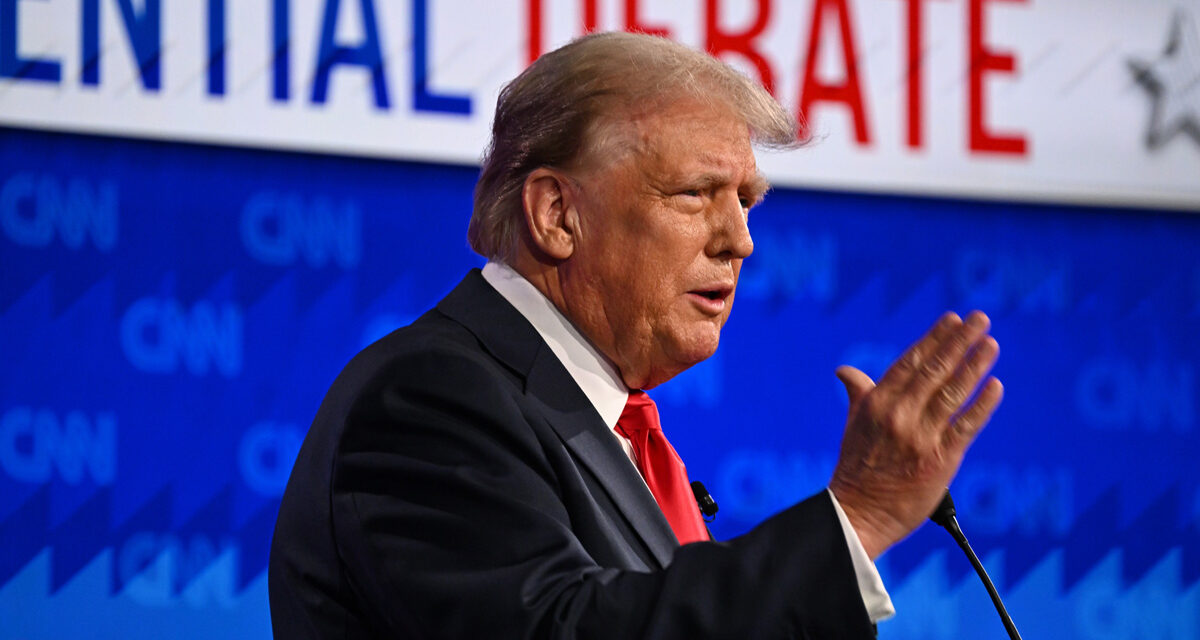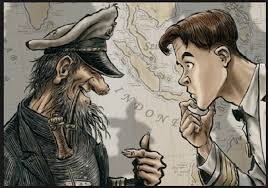The USA has Americanized almost the entire world during the past century. The purpose of pop culture has remained the same: to entertain and educate humanity about the American way of life. Written by Miklós Pogrányi Lovas, senior researcher at the Center for Fundamental Rights.
We tend to identify the United States with its mass culture. There is a good reason for this: the USA has Americanized almost the entire world during the past century. The story began with music and the first dumped commodity was ragtime. The history of the easy-to-consume genre began with Scott Joplin and a host of other black composers. Its function was oblivious entertainment, as the title of the best-known hit (The Entertainer) suggests.
The purpose of pop culture is still the same today, but for decades it has been hiding a hard-to-find commodity: to entertain and educate humanity about the American way of life, the essence of which is the enjoyment of individual freedom and consumption.
Ragtime was the first to follow the same path that other African-American music genres followed: whites and people of other ethnicities got involved in its creation, and it became a flourishing, colorful genre, within which more serious compositions were eventually born. Ragtime also inspired European composers, the fruitful process of exchange resulted in works such as Debussy's Children's Corner. Americanization was strengthened and accelerated by the advent of radio. So much so that the spread of (early) jazz raised the issue of sovereignty.
However, America is more than what the progressive half of its elite suggest through its mass culture. The connection between America and Europe is deeper and more essential, which is of course not easy to notice.
The logic of American development has been the same from the beginning: something "new" is built on European foundations with the appearance of local peculiarities.
That new familiarity is closer to us than the products of African or Asian culture, but somehow it is noticeably different from the European one.
This particular interaction can be observed in science, fine arts, the film industry and, not surprisingly, in public life as well. American philosophy and political theory are based on European foundations, but political communication is an independent development, and political marketing already produces unique products. The end result is reminiscent of a costume movie, since the United States was founded by white, Protestant Christian men, and the 18th century. century-rooted republican scenery still defines the character of this huge postmodern empire.
This is reflected in the logic of the electoral system, the bicameral legislature and the abundance of tiny local bodies and grassroots initiatives.
Thanks to this, American public life simultaneously exudes the atmosphere of childhood vintage and psychedelic science fiction. The United States is fundamentally oligarchic - in a similar sense to the city-states of Renaissance Italy. In fact, there is a battle of elites, only the social mobility is significantly greater than in early modern Genoa, Florence or Venice.
If an American-born citizen wants to be president or vice president, the door is potentially open to him (if he otherwise meets the constitutional requirements). In reality, however, it is very rare for someone to hack the system like Trump (Hoover also became president based on his own wealth, and previously Theodore Roosevelt openly confronted the elite of his party).
In the last hundred years, however, there have been few outsiders in the system. And although the great industrial and banking dynasties mostly remain in the background, there have also been cases where relatives are directly nominated to power (Kennedy, Bush, Rockefeller). They mostly build politicians with habits that correspond to an ideal, a world view (Carter). The example of the Clinton couple can be called more or less unique, in their case the process took place in reverse: they were built by the financial circles behind the Democratic Party, and they got rich as politicians and are now independent power factors in the Washington swamp.
However, the relationship between politics and money is not fundamentally characterized by the Clinton trend, but the opposite: the big American tycoon and banker families devote considerable sums to the shaping of politics.
Furthermore, they try to shape the culture in accordance with their religious beliefs, conscience, and worldview.
However, just as the Medicis of Florence or the Sforzas of Milan did not support large-scale local projects solely for the love of art and not altruistically in all cases, in the XX. even the great billionaires of the 20th century have well-understood interests. It therefore reveals a lot about American billionaires and their giant companies, who donates their wealth to what. Google, Facebook, Microsoft, and Apple typically advance the progressive agenda, but progressive conviction is a fundamental characteristic of large companies that produce intangible goods.
Progressive universities have spent horrendous amounts of money to fund DEI (Diversity, Equality, Inclusion) projects. Sensitizing "scientists" can take home hundreds of thousands of dollars for participating in brainwashing.
At the same time, according to an optimistic article by the National Association of Scholars (NAS), progressive pseudoscience has flourished less since the turn of the century. According to their quantitative analysis, the pandemic, then the war, seems to be halting the woke advance. But there are more and more signs that heavy industry companies are also sobering up. Although there are positive developments, it would still be too early to announce results.
The conservative (and right-wing libertarian) big capitalists who opposed them realized early on: if they want to preserve the legal and corporate environment in which they have been successful up until now, it cannot be achieved simply by smoothing the political career lines. (I briefly summarized the history of this in this article.)
To do this, they must protect the pillars of American culture.
And the big picture - according to Russell Kirk's summation - is the biblical theological tradition, Western thinking based on ancient philosophy, Roman patriotism and the imperial ideal, as well as the further developments of European culture - above all in the form that Great Britain conveyed to its former colony. Because this historical constellation made possible the unparalleled historical recovery.
Ideas of European origin are vulgarized and radicalized in the United States. This is clearly what happened with Anglo-French liberalism and its derivatives: this is how tolerance became political correctness and multiculturalism, then woke.
Extremist political views have long been a challenge for the United States. Thanks to the persistent and professional work of the Soviet secret services, Western intellectuals were ensnared by communism during the 1930s (read more about the Hungarian branch of the European operational area here). Progressive ideas arrived in the United States with a slight phase delay, but by the 1940s Hollywood was also permeated by the ideal of global philanthropy.
The American film industry has been mourning itself as a victim of the witch hunt ever since.
A radical response to the emerging situation arrived in the fifties - which has since been referred to as McCarthyism. The decisive action resulted in the permanent suppression of communism overseas, during the Cold War anti-communism became a general attitude, which was represented by both major parties - albeit with different emphases.
However, mass culture has always been primarily in the hands of those who rode the currently fashionable progressive wave.
It is no different now. Just as at the dawn of the Cold War, a political response had to be given to seemingly cultural challenges, an open political counterattack is also needed now.
Cover photo: Republican presidential candidate Donald Trump
MTI/EPA/CNN Photos/Will Lanzoni













